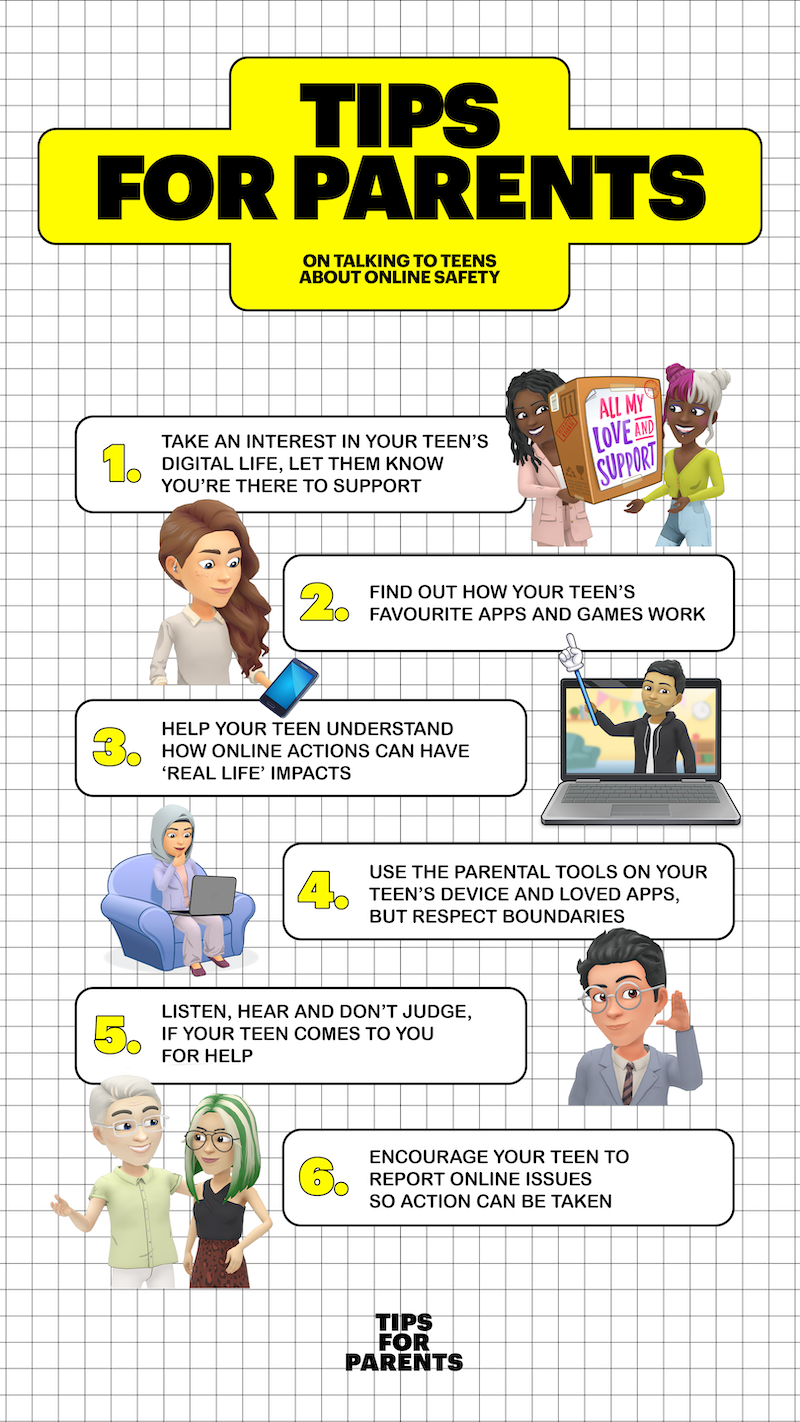As much as you want to help your teen be safe online as they enter the digital world, understanding digital safety can be daunting, and it’s often hard for parents and carers to know how to approach what can be a tricky topic for families to tackle. Yet, it is a valuable and important conversation.
Happily, Snapchat global head of platform safety Jacqueline Beauchere has guidance for parents, caregivers, and teachers on how to initiate an online safety conversation with teens.
“From the beginning, we designed Snapchat to be different from more traditional social media to help people connect with close friends and family without many of the pressures they felt on other platforms. Our goal is to provide a healthier and safer environment for all Snapchatters, especially the youngest members of our community. Our approach to safety and privacy starts with the unique design of our platform and includes extra safeguards for teens. I’d encourage all families to have regular and relaxed conversations about online safety, and recommend that parents of younger Snapchatters make use of our Family Centre tools, which aim to help make these conversations a little easier,” Beauchere said.
|
|
- “Take an interest” Acknowledging how important a teen’s digital life is to them is a crucial first step. Taking an interest and initiating conversation can make young people feel understood and supported by a trusted guardian who’s always there to chat.
- “How does this work?” Learning about your teen's favourite apps and games can help you understand how to support them having a healthier and safer experience online. Snapchat’s guide for parents explains what Snapchat is, how parents can use the app and our rules to help keep people safe.
- “Help them understand” You might not be a tech expert or know every platform or app, but you can help your teen understand how actions online may impact them in the ‘real’ world. Understanding the risks of talking to strangers – and even sharing with friends – and why it’s important to protect personal information are life skills we all need to know, online and off. eSafety in Australia has great resources for parents and young people.
- “Respect boundaries” It’s natural to be concerned about what your teen is doing online, especially if they’d rather you didn’t add them on a platform. Setting boundaries that aim to balance your teen’s privacy while focusing on their safety is challenging yet fundamental. Devices, platforms and services have a range of parental settings on offer. Look into what’s available on the apps your teen loves and explore ways to build trust by discussing these tools and agreeing with your teen on how to use them. Snapchat’s Family Centre suite of tools allows parents and carers to set parameters while still respecting a teen's privacy.
- “Listen – and hear, don't judge” Be mindful of your reaction if your teen comes to you looking for help. They might be embarrassed, ashamed, upset or scared, so let them know you are there to help, no matter what. Listen, hear, ask questions and work to determine the best approaches together. Help them understand what went wrong and how they might avoid tricky situations in the future.
- “Report it, don’t ignore it” Encourage your teen to confidentially report any concerns to the platform or service involved, so they can take action. Snapchat’s Family Centre tools allow parents to report accounts directly. In Australia, reports can also be made to eSafety or the Australian Centre to Counter Child Exploitation (ACCCE).
It can be overwhelming to keep across online trends and how platforms work, but Snapchat’s research found that Australian teens whose parents regularly checked in on their online and social media activities enjoyed better digital wellbeing. More tips and guidance can be found on Snapchat’s easy-to-understand Parent’s Guide.
"With so much of our lives spent online, it’s important for teens to feel equipped with the skills and knowledge needed to help them navigate digital spaces safely and responsibly. Regular, open conversations with your teens about their online activities can help to foster safer and more enriching digital experiences, while also providing an open channel for them to raise any challenges or concerns. I’d also encourage parents, guardians and teachers to familiarise themselves with the key platforms their teens are using, including any reporting tools and parental controls like Snapchat’s Family Centre,” Beauchere said.











































